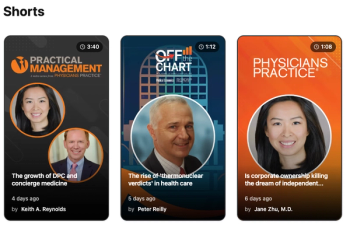
What to do during a medical board investigation
How to mitigate or prevent public discipline by a medical board.
Professional licensing boards play a crucial role in maintaining the integrity of various professional fields, ensuring that practitioners adhere to ethical standards and provide safe and effective services to the public. Besides having plenary power to grant licenses, a professional licensing board (“Board”) possesses full power to enforce regulations and discipline licensees.
When an investigation is initiated by a licensing Board, it can be an overwhelming experience for a professional. However, if a licensee takes the time to triage an investigatory letter from the Board and recognize its importance, they can significantly mitigate or possibly prevent public discipline.
Anatomy of a Licensing Board Investigation
A Board investigation has multiple steps, and it is crucial to understand them so that a proper risk analysis can be conducted.Depending on what phase of a Board’s investigation a licensee is contacted in, the risk analysis changes as the latter stages focus mostly on the target or subject of the investigation.
Various factors may trigger a Board investigation, including patient complaints, public legal issues, or medical malpractice settlements. Once a complaint is received by the Board, they are obligated to investigate it, regardless of its merits, and the investigative process is set in motion.
Fact gathering
During the investigation, the Board gathers pertinent information, which may include medical records, witness statements, and any relevant documentation. It is essential for professionals to cooperate fully and provide accurate information to expedite the process.Licensees have a professional duty to fully cooperate with the investigation.
Interviews and statements
Professionals under investigation may be required to provide statements or interviews to the Board's investigators. It is crucial to be truthful and provide a clear account of the events in question as misleading or false information will exacerbate the situation potentially leading to public discipline.Investigators have various tools and strategies and may try to lull a provider into a false sense of security or attempt to intimidate them.It is imperative that providers approached by Board investigators do not speak with them until they retain legal counsel, who should be present during any questioning.
Best Practices for Responding to Licensing Board Investigations and Patient Complaints
When communicating with Board investigators or responding toa written response from the Board, there are certain considerations that need to be taken:
Prompt and comprehensive response
Upon receiving notice of an investigation, a subpoena, or a patient complaint, it is essential to respond promptly. If the response cannot be prepared within the timeframe noted in the correspondence from the Board, seeking an extension is advisable.Compile all relevant documents and records to provide a comprehensive and accurate account of the situation so that a well-organized and thorough response is submitted.Collaborate with legal counsel to ensure you are responding fully to any subpoena or request.Keep the tone of the response professional and avoid hostility towards a complainant.Responding empathetically to patient complaints, regardless of how frivolous they may be, is viewed more favorably by the Board.
Consultation with legal counsel
Engaging healthcare counsel with Board experience is invaluable.Healthcare attorneys can guide a professional throughout the investigation process, even potential Board hearings, to ensure that a Licensee’s interests are protected.Knowledge of the system and Deputy Attorney Generals (DAG) who prosecute such cases can help avoid public discipline.Legal counsel also ensures adherence to deadlines and suggests proactive steps to address and rectify any issues.
Expectations at a Licensing Board Hearing
The most stressful interaction a licensee can have with its Board is appearing before a subcommittee to provide sworn testimony in response to a patient complaint or Board investigation.However, with proper preparation and attitude, a Board hearing can be an opportunity to close the case in your favor, as opposed to a reason to fear discipline.
Preparation is key
Whether you are appearing before the full Board or a subcommittee, thorough preparation is essential. Review all documentation related to the investigation, including any submissions to the Board, and conduct mock hearings with your legal counsel who will help to anticipate potential questions that may arise during the hearing.
Have a clear theory of the case
At the hearing, the prosecuting DAG and Board members will ask various questions pertaining to patient care and a licensee’s general practices.Presenting a clear and organized narrative that addresses the concerns raised during the investigation while adhering to a consistent “theory of the case” is essential.If a licensee is evasive in their answers, or gives conflicting answers, the Board is likely to find that the licensee is being dishonest, which will lead to some form of public discipline.
Potential hearing outcomes
Following deliberation on evidence and arguments there are several possible outcomes that the Board may reach. The best-case scenario is a dismissal of the case, which would keep the investigation and hearing strictly confidential.
Alternatively, the Board may issue public discipline in the form of a Consent Order that is public in nature and can revoke, suspend, and/or limit a professional’s license.Similarly, the Board can fine, sanction, or require further education, a monitor, or skills assessment for a licensee.
If the licensee disagrees with the proposed Consent Order, the Board will file an Administrative Complaint.
Conclusion
Navigating a Board investigation can be a challenging experience for professionals. Understanding the anatomy of a Board investigation and implementing effective response strategies empower professionals to navigate the process with greater confidence and a higher likelihood of a favorable resolution. While the prospect of a hearing may seem daunting, thorough preparation and a professional demeanor can increase the likelihood of a favorable outcome.
Newsletter
Optimize your practice with the Physicians Practice newsletter, offering management pearls, leadership tips, and business strategies tailored for practice administrators and physicians of any specialty.






